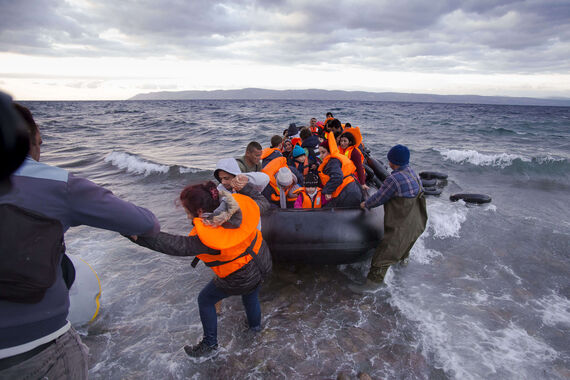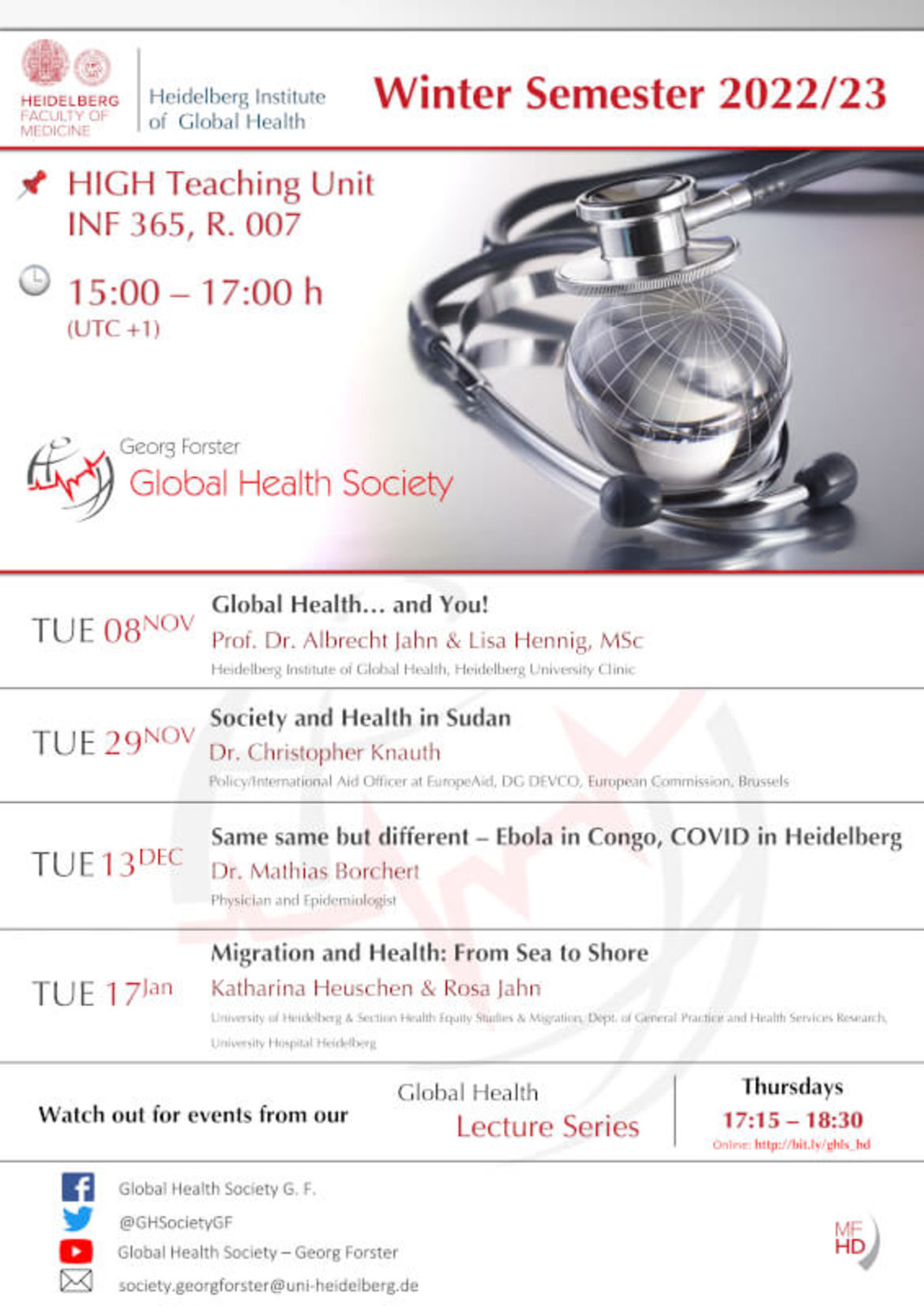Dear All,
welcome to our Global Health Society Seminars!
But what are they actually?
In contrast to our Global Health Lecture Series, the Seminars give you a more hands-on experience in Global Health topics, which means you have the chance to step into the role of Global Health professionals and actively engage in innovative problem-solving and thus get a sense of what it would be like to shape the realm of Global Health.
Structure of the seminars
The seminars run from 3 to 5 pm with a little break in between. Usually, our lectures will give you an impulse presentation on a current global health issue that requires your attention. After that, you have to time get into smaller or bigger groups and try to solve the issue under scrutiny with your fellow professionals attending the course (aka your classmates). The last third of the session is dedicated to presenting, comparing, and discussing the ideas you have come up with and ideally choosing one or finding a compromise.
The time given for group work or participant engagement may vary sometimes depending on our speakers and the topics.
Another advance of the seminars is that some of our International Health master students are attending the sessions, which is a good opportunity for you to make new connections and get interesting insights from their previous work experience from around the globe.
What you have to do:
- Come with curiosity, interest, and some appetite to make the world a better place!
- Attendance and active engagement in class (remember it’s after all an opportunity for you to learn and broaden your horizon and of course to enjoy the course).
- If you wish to do 1 ECTS point, which is probably more applicable if you are a Dr. sc. hum. Student, then we require you to write an essay - on a global health issue of your choice - as well. In this case, please contact Hilde Gold-Feuchtmüller or Lisa Hennig, to let us know which topic you would like to write about so we can connect you with a suitable advisor.
Example:
Setting the agenda of the World Health Assembly as members of WHO’s Executive Board
In the past, we have had a range of great and highly up-to-date issues to tackle: Just last year we conducted a mini simulation of WHO’s Executive Board – an Institution that meets Mid-January to discuss and set the agenda for the World Health Assembly (WHA) in May of the same year. In this case, students were asked to decide as board members which three major global health topics should make it on the WHA agenda while bearing in mind that what is discussed at the Assembly sets the course for future WHO action and those of its 194 member states. Hence favoring to invest more time into pandemic preparedness over maternal and child health issues might have significant for the latter two groups, especially in low- and middle-income countries.
In that session, students learned to discuss topics and defend their choices and priorities – a skill that is highly useful in global health as every national policy and high-level meeting requires agenda setting a priori.






